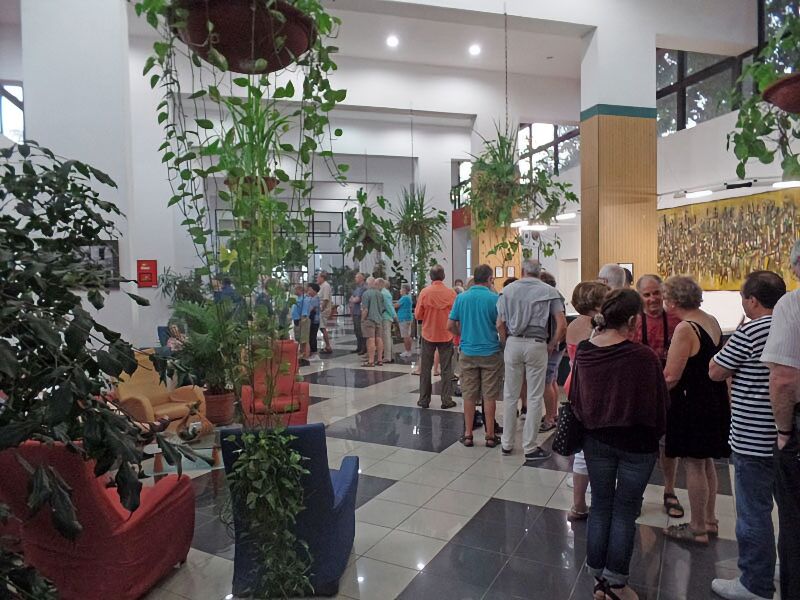
Trip to Cuba and New Orleans
Mike and Judy Henderson
January 25 to February 8, 2016
Today I'll discuss the US embargo against Cuba and Cuba's economic situation. The US is essentially the only country that still has an embargo against Cuba. Cuba can get goods from, and sell goods to, essentially any other country. And yet Cuba is very poor. The reason has nothing to do with the US embargo and everything to do with the Cuban economic system.
Practically all the methods of production are owned by the government. For example, the hotel we stayed in in Cienfuegos is owned by the government but is run by a European or South American (don't know which) company in a joint venture. I expect that any company that would have to invest a significant amount of money into a venture in Cuba would choose not to do so today because of the very high taxes on revenue (not profit), and the risk of termination of the venture by the government. Given the taxes and risk, a company would just not invest in Cuba.
In my opinion, whether the US congress choses to end the embargo, or not, will make very little difference in Cuba. Until Cuba changes its economic system, and has an internationally recognized rule of law, companies are unlikely to bring money (and jobs) to Cuba. Cuba has the ideal of economic equality for it's citizens, but unless it allows entrepreneurs to profit from the risks they take in starting new ventures, there simply will not be any new ventures.
The population of Cuba is about 11 million. About 2 million live in other countries, with the largest group, over one million, residing in the United States.
According to our guide, young people had been voting with their feet and leaving Cuba in significant numbers. However, it's becoming very difficult to get a visa to travel to another country because the other countries know that the Cubans will likely not return to Cuba. Additionally, families are not having many children. The birth rate is about 1.4 children per couple. This surprised me because Cuba provides a year of paid maternity leave after the birth of the child, free child care, free education and free medical care so I thought the low cost of having a child would encourage couples to have many children. Our guide, however, pointed out that many things related to children are very expensive in Cuba, such as infant formula, diapers, children's clothes and shoes, and other items related to raising a child. And the parents' income is quite small compared to more advanced economies.
The biggest "industry" in Cuba is remittances from Cubans living outside Cuba. Without that, many Cubans could not get by. The next biggest is tourism.
Today, employment has been turned on its head in Cuba. A person with an advanced degree, such as a doctor, engineer, professor, etc. makes a very small salary in Cuba. The reports are about $20/month. However, any job associated with the tourist industry, such as a maid in a tourist hotel, a taxi driver, a tour guide, etc. makes an enormous amount of money compared to the professionals. A maid can easily get a 10 CUC tip per room per stay (maybe three days). If she (and it's usually a woman) services 20 rooms per day, you can calculate how much cash (perhaps unreported) she takes home per month (of course, she probably has to pay her boss to keep her job). Your taxi driver may be a graduate electrical engineer. It's just crazy.
++++++++++++++++++++++++++++++++++++++++++++++++
1/28/2016 Today we travel to Havana. We were up early and down to breakfast at 7am. Apparently, a lot of other people were also leaving and had already lined up for breakfast.

We headed west towards the Bay of pigs. The road was narrow and winding.
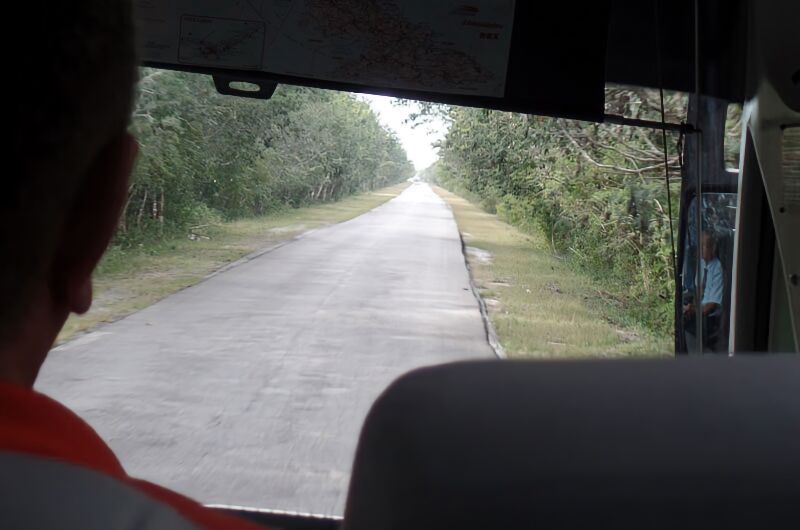
We stopped at a roadside refreshment stand before heading to the Bay of Pigs Museum.
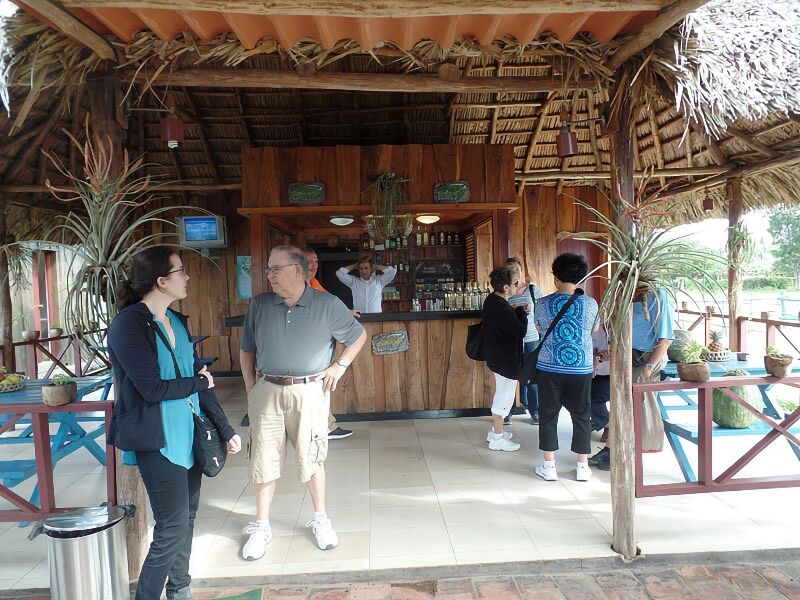
Then we posed in front of a billboard that said "First major defeat of the imperialist Yankees in Latin America."
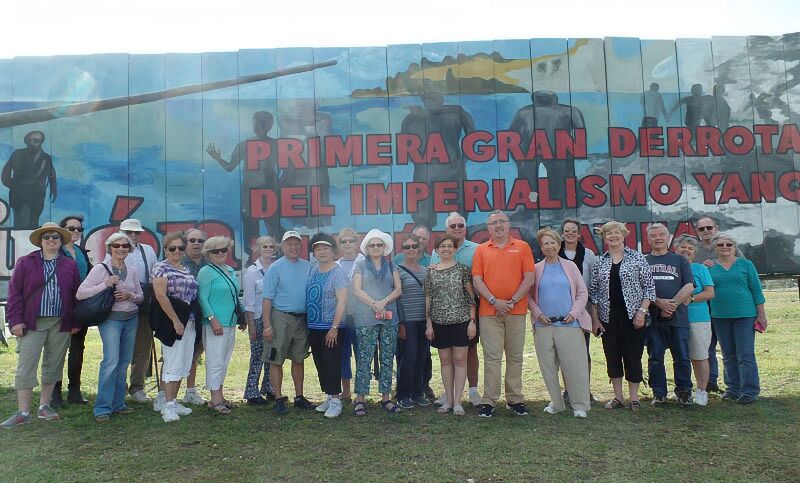
Our next stop was the Bay of Pigs Museum. As you can imagine, the Cuban story of the event does not follow the generally accepted history. If you'd like a summary of that event, Wikipedia has a good article here.
We watched a newsreel type movie that was straight propaganda, much like those produced by the US during WWII.
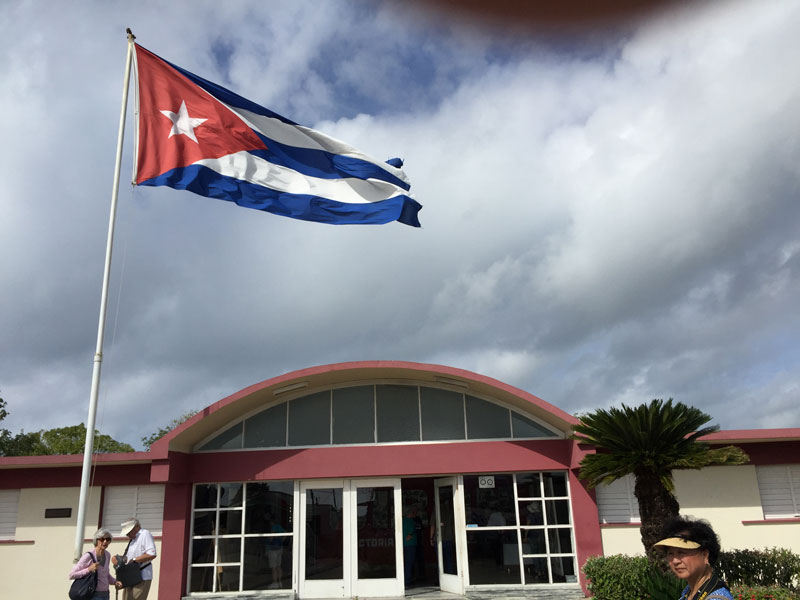
All that propaganda made us hungry so we stopped at a small seafood restaurant not far from the museum.
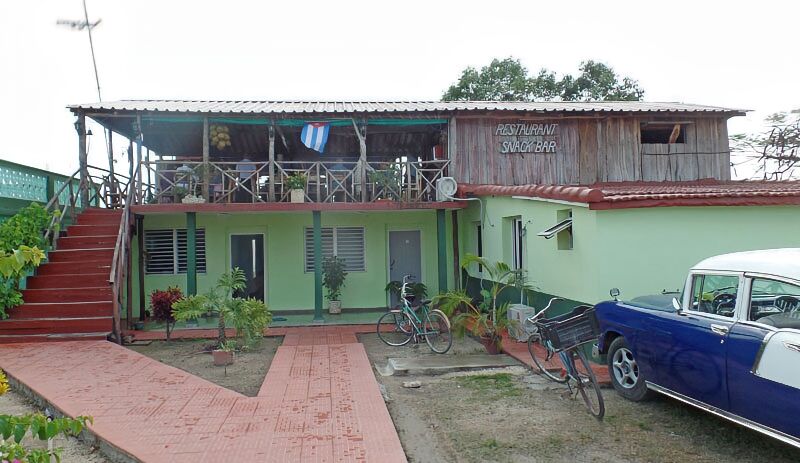
It was a lovely outdoor patio overlooking the water.
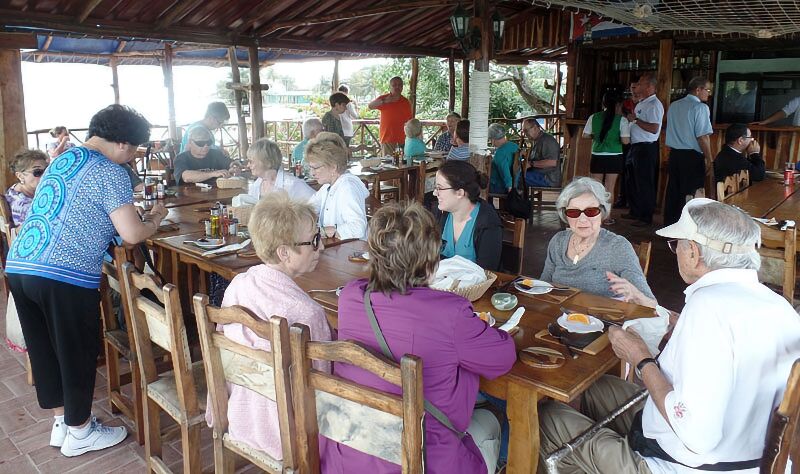
We had shrimp, crab and a fish cooked whole, and a dessert.
We then headed to an "Arts School" where we saw three modern dances performed by Cuban dancers.
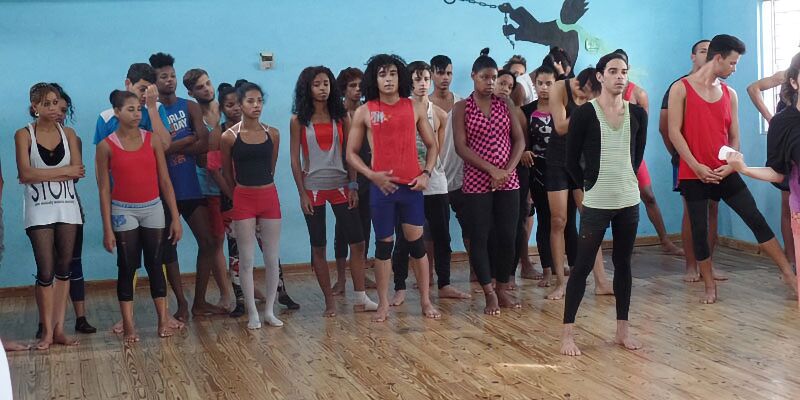
This was followed by a music class that performed Cuban style music.
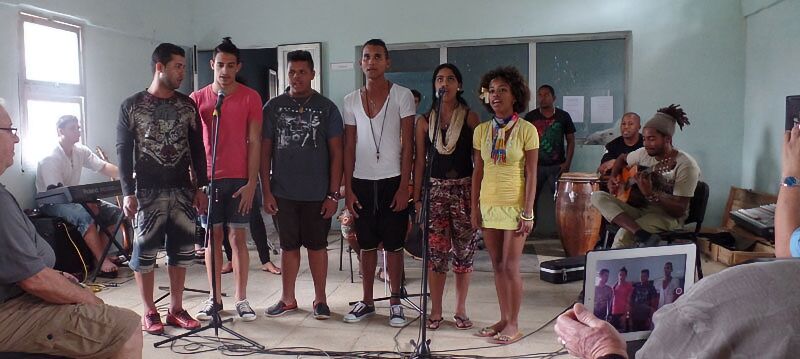
The student playing the guitar was quite good.
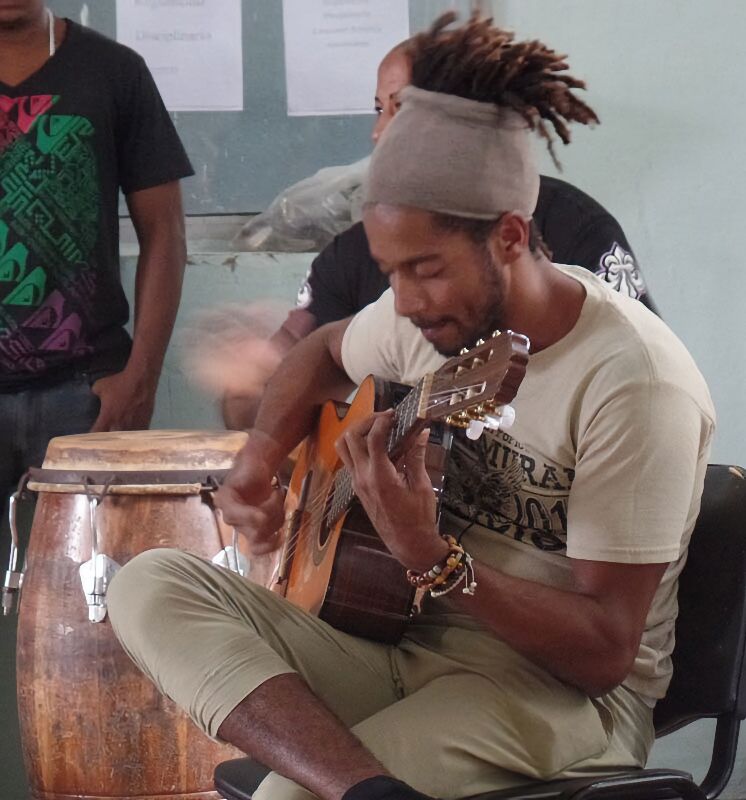
Then we resumed our travel to Havana. One of the musicians, a cellist, joined us for the trip. She was going home for a few days, and riding with us would save her a lot of time.
The ride to Havana was rough. Although the roads are paved, they seem to have a lot of irregularity in them which bounces the bus around. And some of the roads are just worn out with potholes and many patches. This also adds to the rough ride.
But we finally made it to the Hotel Nacional, just about dark. The next few pictures were taken the following morning.
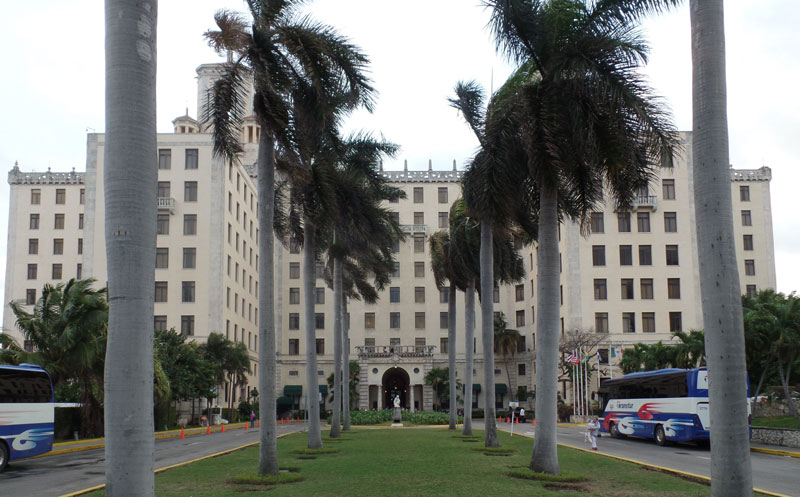

And here's Judy at the entrance to the hotel.
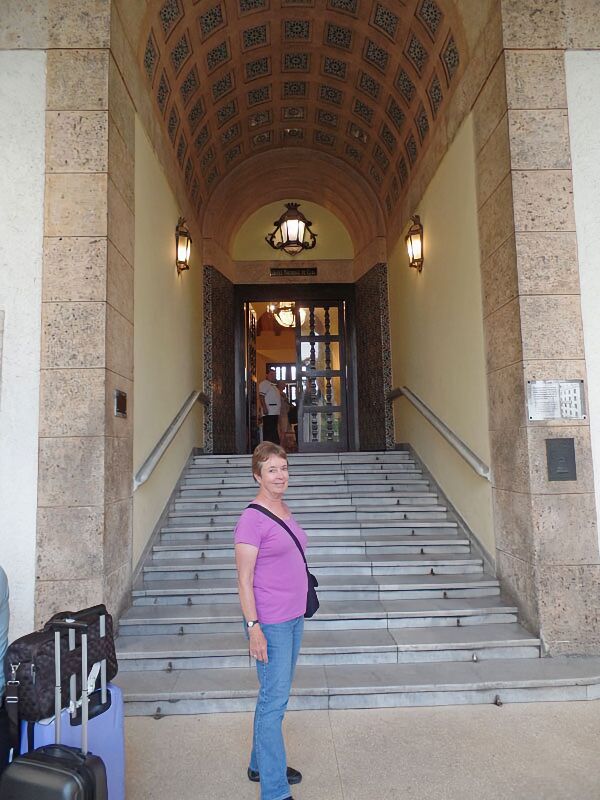
For dinner we went to a nice restaurant within walking distance of the hotel. The main courses were beef (a filet mignon cut cooked well), pork, and a seafood combination (shrimp, fish and lobster). Sorry, I didn't take any pictures.
After that, it was back to the hotel and bedtime because we would have to be up by 6 again.